Hollande in Moscow: A new era in Russian-French relations?
- Published
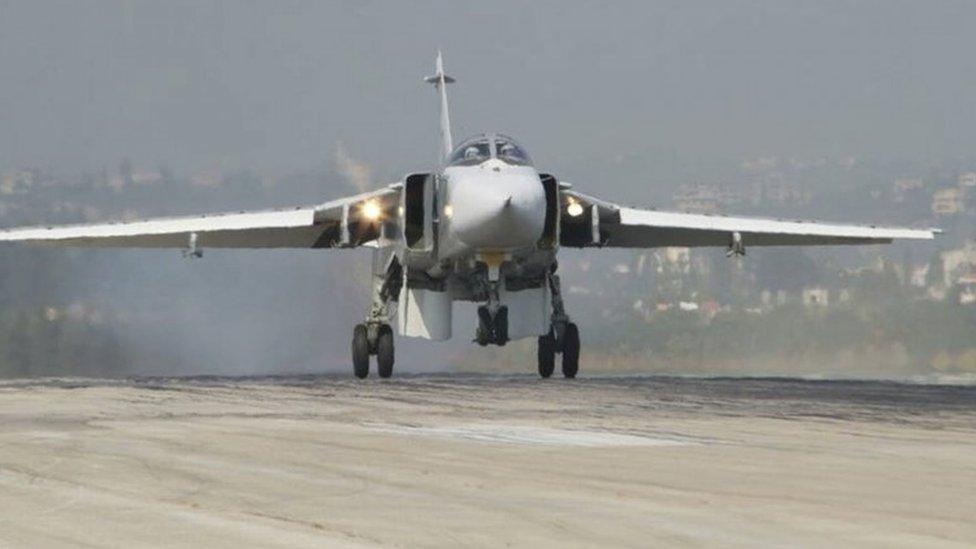
Russian President Vladimir Putin has ordered his military to co-ordinate with the French in the campaign against Islamic State.
French President Francois Hollande's visit to Moscow comes at a time of fast-shifting diplomatic alignments and priorities, triggered by the spread of Islamic State (IS) terror.
Some see in this the potential for a new era in Russian-French relations. Maybe not the strategic alliance of old, but certainly an end to the modern-day chill.
Events have certainly moved quickly. A year ago France was in the middle of a nasty spat over warships which it was refusing to sell to Vladimir Putin.
For France, the Russian leader was a destabilising presence on Europe's eastern borders. EU sanctions - intended to contain Russian ambitions in Crimea and Ukraine - had full French backing.
Russia 'a major player'
Today there are more pressing concerns.
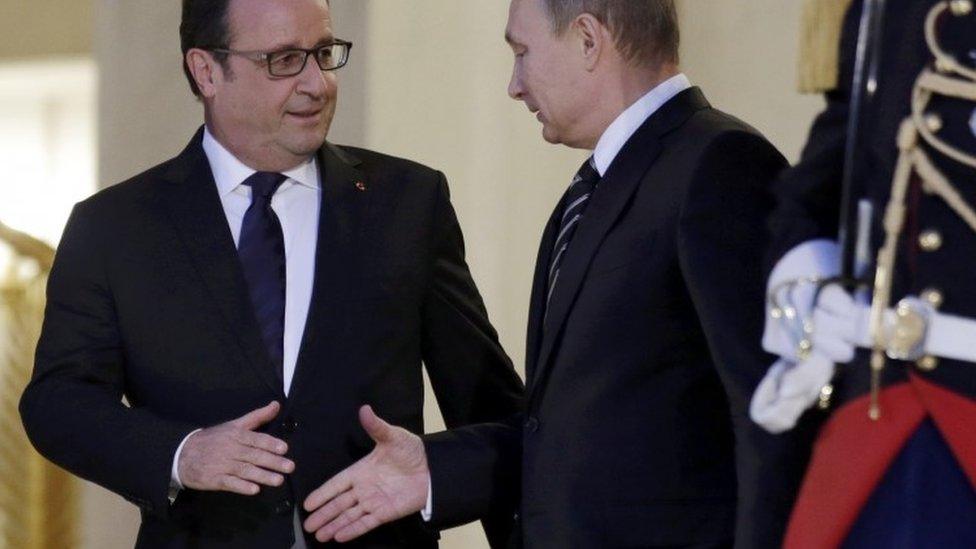
France and Russia - two great nations lying at either end of the European continent
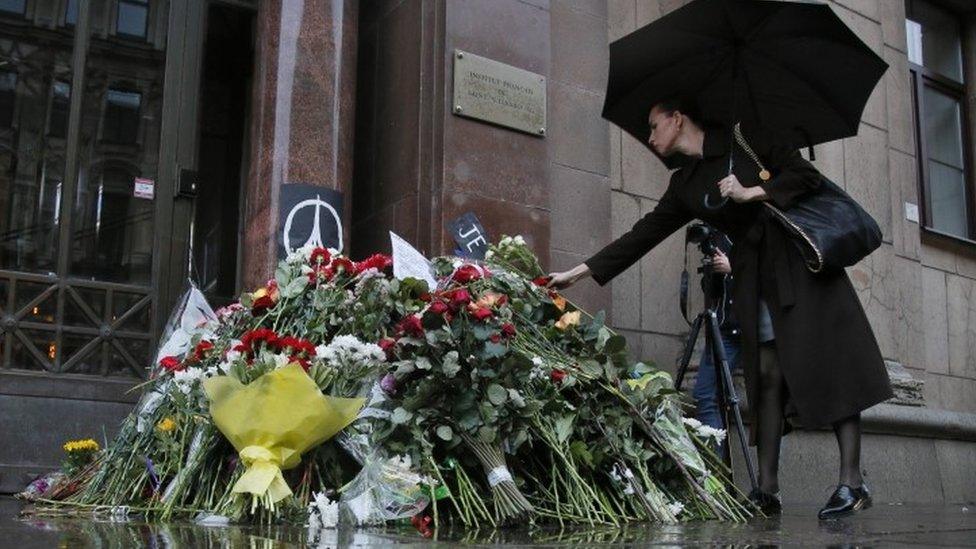
There has been much public sympathy in Russia for France over the Paris attacks
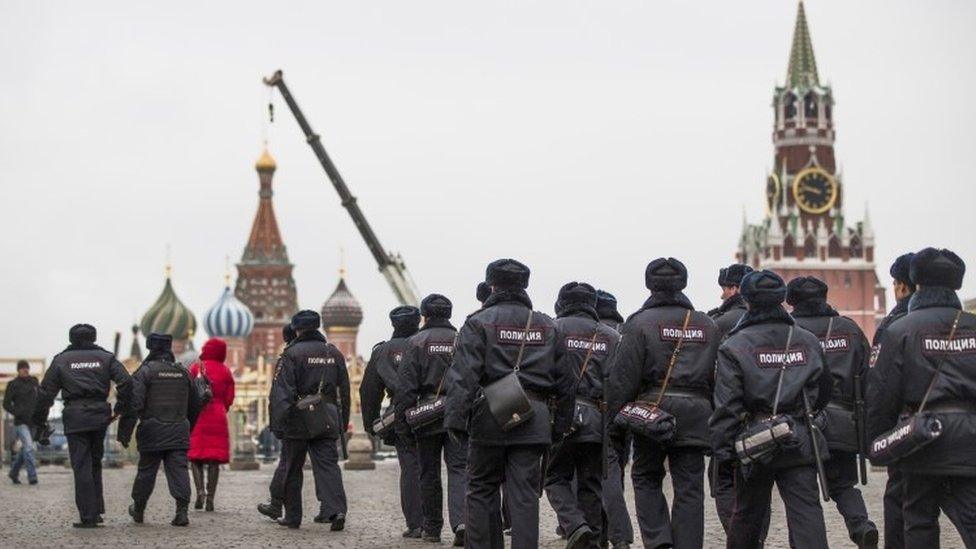
Russia has tightened up security in Moscow in the wake of the attacks in France
In the wake of the Paris attacks, President Hollande had a vision of a single, united international coalition - the nations of the world working together to eradicate IS.
Realities have since deflated that ambition. The Americans and the Russians are not going to work together any time soon. And the Turko-Russian crisis over the downed Sukhoi Russian warplane is a further complication.
But still, the French want as many countries on side as possible. And the Russians - by dint of their military presence in Syria - are a major player.
As one diplomatic official told Le Monde: "Right now we are probably more prepared to work with the Russians than Barack Obama is."
President Hollande has two goals in his talks with Vladimir Putin.
First he wants to persuade Russia to direct its airstrikes away from the "moderate" Syrian opposition and onto targets belonging to IS.
Second, he wants a firmer understanding that Russia will not stick indefinitely behind Bashar al-Assad.
The French feel they have made a significant change in policy by de-prioritising the removal of the Syrian leader.
Perceptions jolted
It took a good deal of pride-swallowing to make the concession, because until two weeks ago Paris was President Assad's greatest scourge.
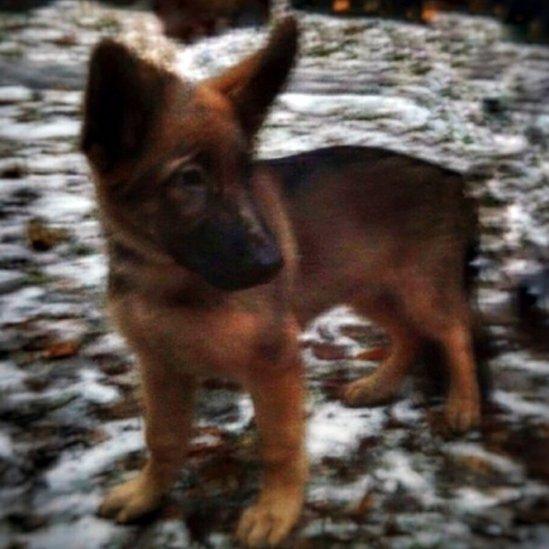
Russia sent a dog - Dobrynya - to replace Diesel, the French special forces Alsatian who was killed in the raid in Saint Denis
But there is only so far that the French will go down this line. And they feel Russia should also give some slack.
There are a number of factors in favour of a rapprochement.
First of all, Russia has itself now come face-to-face with IS terrorism - with the destruction of the tourist plane from Sharm el-Sheikh.
This has jolted perceptions in Moscow, for which IS is now a designated enemy.
Second, Russia has every interest in cultivating Paris as a new friend.
Shared interest
Straight after the Paris attacks, Mr Putin ordered his military to co-ordinate with the French in the campaign against IS - an unprecedented act given that France is in Nato.
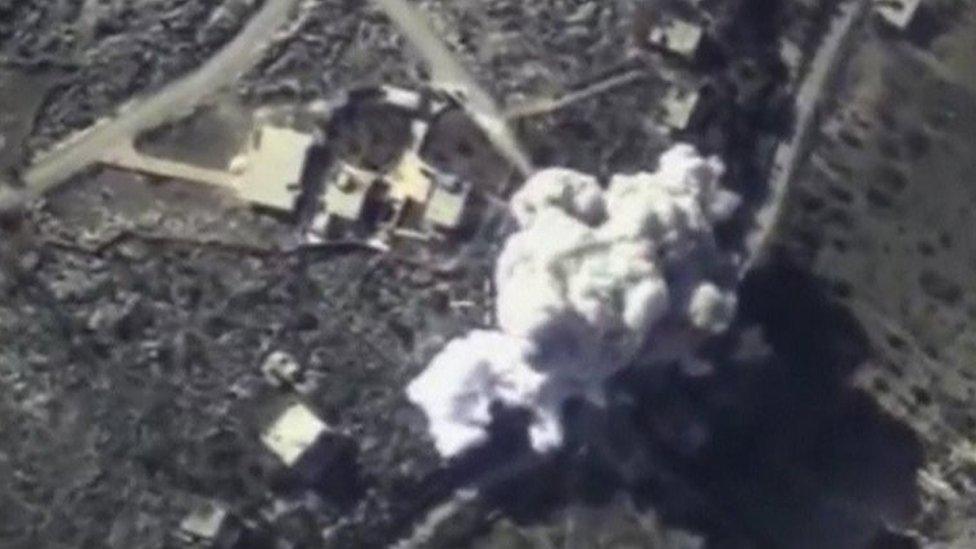
Russia is being urged by France to concentrate its attacks in Syria on IS targets
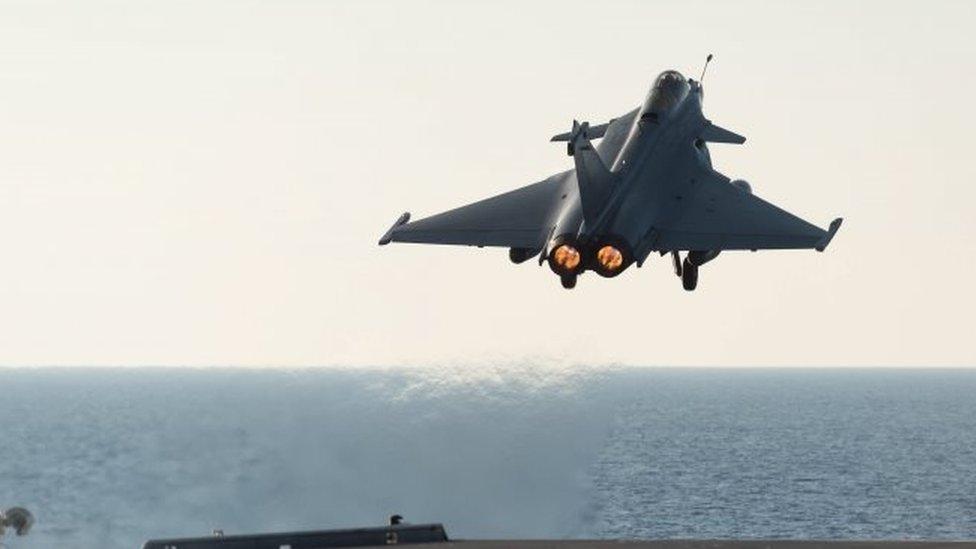
In the Middle East, France's allies are the Gulf states and Saudi Arabia - not the Shia axis backed by Russia
The Russian leader was effusive with compassion, and even sent a dog - Dobrynya - to replace Diesel the French special forces Alsatian who was killed in the raid in Saint Denis.
It was all very deliberate, because there is nothing the Russians would like more than to lure the French out of the American-Western orbit.
In the geopolitics departments of Russian universities - and some French ones too - this is regarded as a historically-determined necessity.
France and Russia, after all, are two great nations lying at either end of the European continent - with a shared interest in preventing its domination either by outsiders (the US) or insiders (Germany).
Throughout the last three centuries the two countries have been periodic allies - notably in the run-up to World War One.
But also President Charles de Gaulle himself - though viscerally anti-Communist - kept his distance from the Americans by flirting with the Soviet Union.
What could be more natural - say Kremlin insiders - than for France to resume its natural role, triangulating between Washington and Moscow?
But tempting as this might sound to some in France, there is no geostrategic shift in the offing.
For one thing the French do not trust Vladimir Putin.
For another, the two countries still have opposing visions on too many key issues.
France will never abandon Ukraine. And in the Middle East, France's allies are the Gulf states and Saudi Arabia - not the Shia axis backed by Russia.
There is a concordance of interests bringing Paris and Moscow together. With luck, this will help in the battle against IS.
But there is no new alliance.